Why pushing back against power always works
A 16th century French philosopher reminds us that dictatorial leaders are smaller than the electorate

This post has been updated since publication.
A harmful group of pundits and politicians appeared online to tell people to stay out of the streets as the Trump Administration takes away civil rights. Don't listen to them.
President Donald Trump is deploying the Marines to shoot and intimidate anti-ICE protesters in Los Angeles, and plans to send more violent ICE enforcement “tactical” units to five other sanctuary cities, including Seattle, Chicago, New York City and Philadelphia — constructing, in one swift week, the police state that he has long dreamed of imposing on America.
As the New York Times columnist Michelle Goldberg accurately noted, we are seeing what fascism in the United States looks like:
“If you saw all this in any other country — soldiers sent to crush dissent, union leaders arrested, opposition politicians threatened — it would be clear that autocracy had arrived.”
Even California Governor Gavin Newsom — the very picture of an empty milquetoast pandering liberal, a sentient can of hair mousse, cynically ambitious to the extent that he personally stole the belongings of homeless people to make their lives even more unlivable in the hope that the cruel stunt would gain him more right-wing votes — recognized that the US government is well outside of its mandate in the brutal force it’s exercising to intimidate voters into silence about ICE abductions.
So. The police state is here. Autocracy is not just at the door, it has burst through it. And Trump’s moves, while extreme, are no surprise coming from him.
The question is:
What are you, as a citizen in a rapidly failing democracy, going to do about it? When you look back on this time in history in 10, 20, 30 or 50 years, what will you have to say for your own contribution to democracy?
What you should do, according to a 16th century French philosopher we’ll talk about below, is not comply.
Fascism and tyranny require your permission. Your silence in the face of fascism is permission for the fascists to keep going. After all, if it was bad, you would have said something, right?
That means that you have to speak up, and show up, strongly and alongside your community — in the way that Benjamin Franklin meant when he said, “a republic…if you can keep it.” Protests are a form of personal and community self-defense against violent leaders.
And if you don’t say anything, fascism keeps encroaching, getting bolder, taking more of everyone’s rights including your own. We’re seeing that already. For the FIFA World Cup, which will welcome hundreds of thousands of foreign tourists to Los Angeles, security will be provided by ICE, and agents can ask for anyone’s identity papers and “proof of legal status” just for attending a soccer game. Imagine having to take your passport to a sports event. Imagine mass arrests in the stands between goals.
Does that sound like democracy to you? It sounds more like the propagandized police state underlying Hitler’s 1936 Berlin Summer Olympics than it does America in 2025.
And here’s the good news: Trump, specifically, usually rolls back his policies when he gets enough pushback. He’s highly invested in his popularity, and he doesn’t tend to stand by anything that loses him admiration or support. This pattern is why Trump earned the derisive nickname from Wall Street, TACO — Trump Always Chickens Out. Communities including Arcadia, California and Milford, Massachusetts have successfully pushed ICE out and protected their fellow community members.
Fascism does not have to win. It loses all the time.
Pundits against protesting
There are, of course, a lot of very comfortable people who want to tell you what not to do about it: You should not use your constitutionally mandated First Amendment right to protest or show any public dissatisfaction with the government, they insist. Your opposition must be quiet, make no waves, attract no attention. Democracy, like the antiquated view about children, should be seen and not heard.
This “don’t scare the horses” approach amounts to saying that the only sound we, as a country, should hear is not that of citizens standing up for themselves, but that of jackboots marching through Washington D.C. for a military parade on Trump’s birthday this weekend.
Perhaps that’s why belittling protest as a democratic response has been a popular activity from the political and pundit classes this month.
The shallow rhetorical feint they use to accomplish this demand for silence is to falsely characterize protests as “violent” — ignoring the fact that the guns, the bullets, the tear gas and the projectiles all come from the police, not the protesters.
The demonstrations in LA are a completely logical resistance to autocratic violations of democracy like those that have defined US history, starting with the mass protests and civil unrest that created America itself and including previous near-fascist government violence like the state-sanctioned murder of students at Kent State, which one witness this week compared to the use of military force in Los Angeles.
No one in the LA protests is armed except the police, the National Guard, and the military.
Senator Bernie Sanders, who was himself violently arrested in 1963 by armed police at a “nonviolent” civil rights protest and subsequently built his career on that image, took to Twitter to caution Americans to stay “nonviolent.”
Bernie’s tweet was misdirected, considering the true source of violence:
The obvious point that Bernie missed, and which a lot of posters immediately grasped, is this: You can be as nonviolent as possible, and if the state responds with violence — which it usually does — then it’s instantly a “violent protest.”
Similarly, this weekend, a popular poster with over a million followers on X shared a negative opinion about the protests against ICE in Los Angeles. Protests, he suggested, are a suboptimal way to gain civil rights. (The optimal way to protest, he suggested, perhaps tongue in cheek, is to marry undocumented immigrants so they can stay in the country — which is, itself, illegal and flagged for investigation. The 90s move Green Card can’t even properly romanticize how harrowing it is for couples to put up with repeated immigration visits.) Discourse has ensued for days since this tweet:
I cropped the poster’s name out, because if you’re extremely online, you know it already — but more importantly, what we should be talking about is not limited to one man’s opinion and how to change it.
A lot of people — especially centrist liberals — use the same language as that poster, and say they share the same views he does: That protesting is violent, ugly and unnecessary.
They support the historical mythology of Dr. Martin Luther King Jr. — who was violently assassinated to stop his message, despite a career built on nonviolent protest — but they would oppose his mass protests if he lived among us today.
MLK Jr., for his part, considered white moderates and their dislike of protest to be dangerous to freedom:
What Dr. King was frustrated with lives on today: An unproductive, clout-hungry “I got mine” worldview that prioritizes personal comfort, narcissistic individualism, and avoidance of conflict. It rests on an ahistorical belief that history was changed and civil rights were won through, perhaps, podcasts and a series of plenary sessions with elected officials at airport Hiltons.
All human rights, throughout history, without exception, have been won through direct and visible confrontation with power. People have to show their numbers to be taken seriously by politicians.
That is certainly true in the United States. It was the plan of the Founders that U.S. citizens, in return for their expansive rights and freedom, would personally do the work necessary to maintain a functioning democracy, including actively opposing autocratic encroachment.
Dr. Richard Beeman, history professor at the University of Pennsylvania, expanded on this for the Constitution Center. (I highlighted the most important part.)
If there is a lesson in all of this it is that our Constitution is neither a self-actuating nor a self-correcting document. It requires the constant attention and devotion of all citizens. There is a story, often told, that upon exiting the Constitutional Convention Benjamin Franklin was approached by a group of citizens asking what sort of government the delegates had created. His answer was: "A republic, if you can keep it." The brevity of that response should not cause us to under-value its essential meaning: democratic republics are not merely founded upon the consent of the people, they are also absolutely dependent upon the active and informed involvement of the people for their continued good health.
This is why the liberal “sit back and do nothing” approach is not only unproductive, it’s actively harmful.
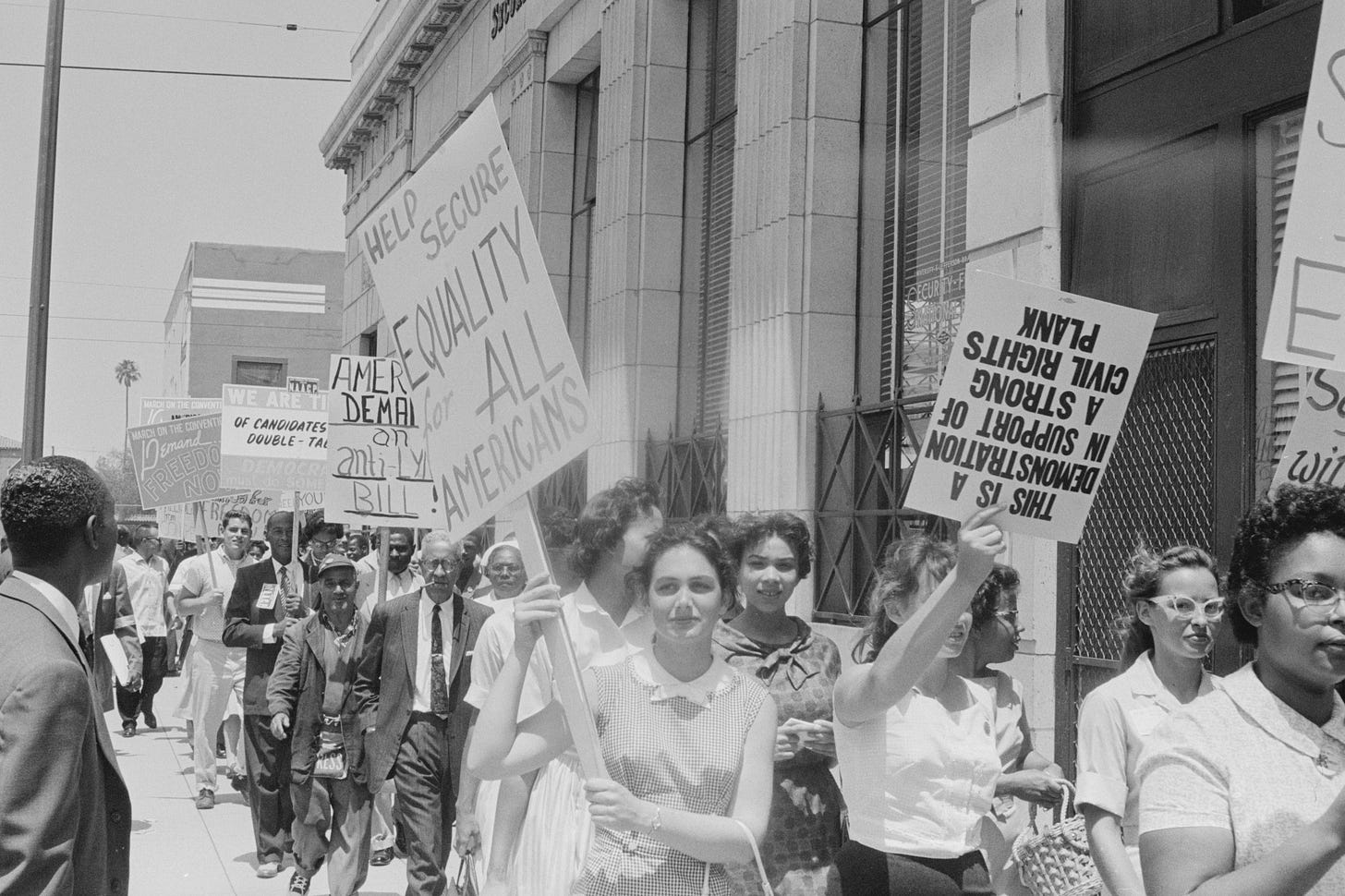
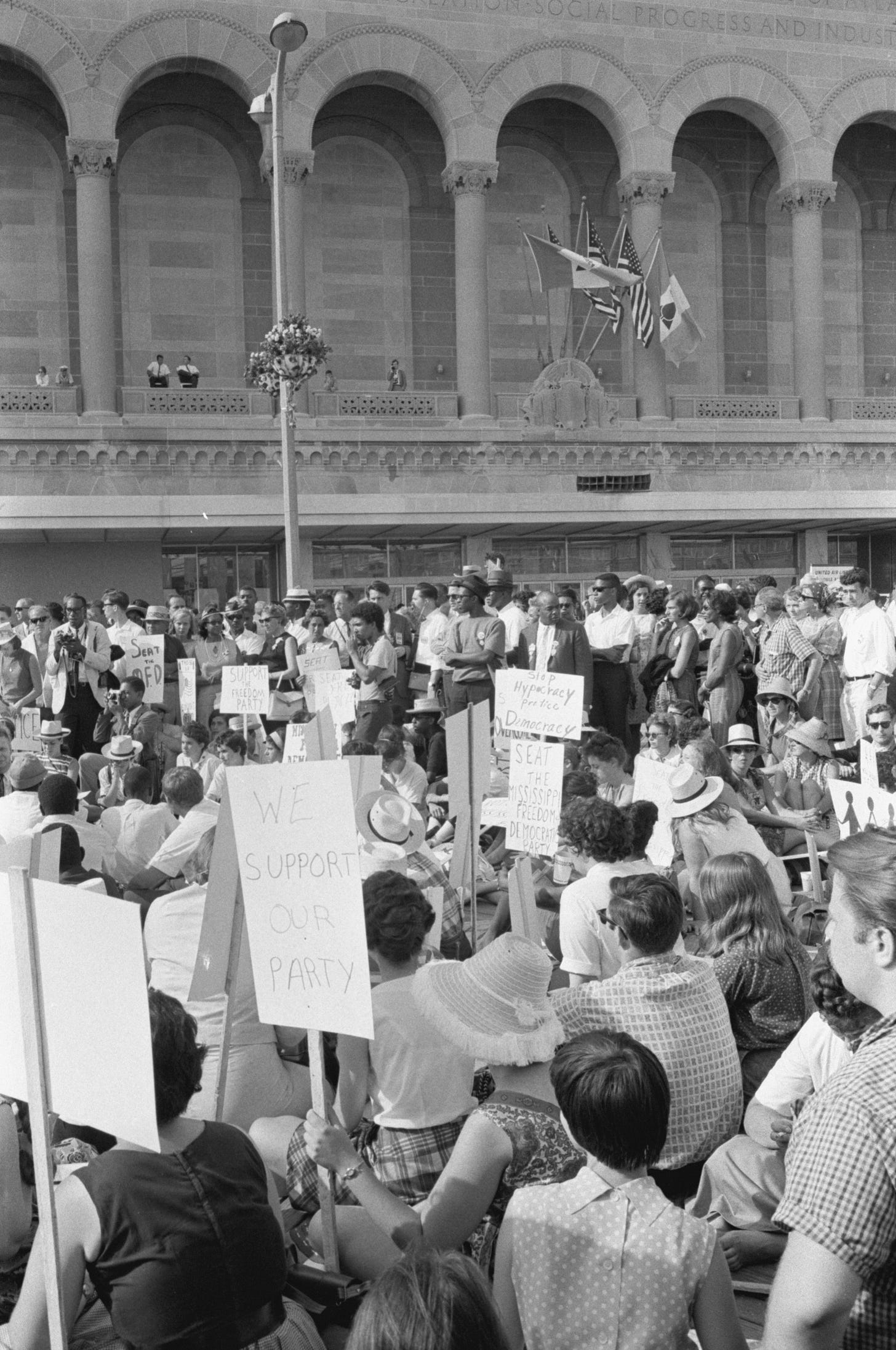
Even a passing knowledge of history shows the results of standing up to power: The suffragette movement, the civil rights movement, the feminist movement (in four waves!), AIDS activism, the abortion rights movement, immigrants’ rights demonstrations. In all cases, they were successful (and that work is ongoing) in expanding our civil and human rights because of long, sustained protests.
“Violent” vs. “nonviolent” protests don’t exist. Protesters do not control the level of violence. Police initiate the violence.
Let’s revisit this point about “nonviolent” and “violent” protests because it keeps coming up. This is not a thing.
The violence in the LA protests is not being initiated by the protesters, though it may be answered by them.
The violence in these protests, as in so many others, is being instigated by the police.
What we are seeing various outlets of the government, breaking US laws to rob people of their legal rights, then using guns and tear gas against its own voters, taxpayers and citizens when they object. It is a crisis.
Nearly all protests start out peaceful, as the ones in LA did according to American Prospect executive editor David Dayen, who was there and saw clergy sit-ins, Tejano bands, and families marching together with their communities. His report is here.
The demonstrations in LA are themselves an answer to days of violence initiated by the government in ICE raids— mainly physical and psychological torture of vulnerable law-abiding immigrants, who showed up to regularly scheduled appointments then were bait-and-switched, detained, thrown in dungeons, separated from their families and their children, and starved in dark cells.
That’s a pretty good and clear reason to protest: ICE’s government-backed abductions are not only illegal, they are also morally reprehensible and a violation of democratic norms.
To flip Bernie Sanders’ smarmy urging that “discipline is required” — it absolutely is, and that discipline should come from the government about how it is using excessive force against free speech, on a regular basis.
There’s a reason for why all “peaceful” protests are “supervised” by armed police in riot gear before anyone has even taken a step.
This is the reason: The power of the government is dependent on its ability to use force. As the political theorist Max Weber wrote, the contemporary state proves its legitimacy by maintaining the monopoly on violence. (A quick rundown on Weber’s political theory here).
What the “state monopoly on violence” means: It’s the state that has the guns, the riot gear, the batons, the rubber bullets that render protests “violent.”
If you, as a voter, fire rubber bullets, you get arrested. If someone with the power of the state fires rubber bullets at a journalist — violating the First Amendment — they often face no consequences and in fact get promoted.
Those incentives, and disincentives, to violence tell the entire story.
In more specific terms, not only are the current ICE raids violent because of specific instructions by leaders of local and federal law enforcement to make them that way in a “deranged fantasy” of autocratic violence, but also the state is invested in making them more violent, and more frequent, in more cities, with $72 billion earmarked in the One Big, Beautiful Bill for heavier enforcement, as Dayen noted.
In other words: Trump is sending the Marines to Los Angeles to defend the brutality of the ICE raids there because LA is a test case for what Trump plans to do in the rest of the country. That is why Trump promised that the police and military would use “equal or greater force” against protesters who answer back to the violence that law enforcement uses against them. And this is why Trump is going to send more units to New York City, Philadelphia, Seattle and Chicago.
You do not, actually, have to hand it to fascists: Etienne de la Boétie on the “small men” of tyranny
You get the picture. This is one of the darkest times in recent American history. So to understand it, what we should talk about is democratic power and who gets to wield it.
And to do that, we have to go back in time, to the 16th century in France. To the Bordeaux of the late Renaissance, under the rule of King Charles IX during a time of intense violence between Catholics and Protestants. That’s when a young philosopher named Etienne de la Boétie started composing a defining essay on how to live under tyrannical leaders.
(Spoiler: His answer was that you don’t have to. But more on that in a second.)
During La Boétie’s time, King Charles IX’s mother — in fact, the mother of three successive milquetoast French kings, as well as the wife of yet another, Henry II — was Catherine de’ Medici, a power-hungry schemer and alleged recidivist poisoner of her enemies who backed frequent massacres and expulsions of French Huguenots, or Protestants. Her bigoted efforts included the infamous St. Bartholomew’s Day Massacre, a weeks-long bloody slaughter in 1572 in which prominent Protestants were invited to the wedding of Henry III and Margaret of Navarre under the pretext of religious peace, then exterminated by the King’s troops, who then moved on to killing more Protestants in the provinces around the French capital.
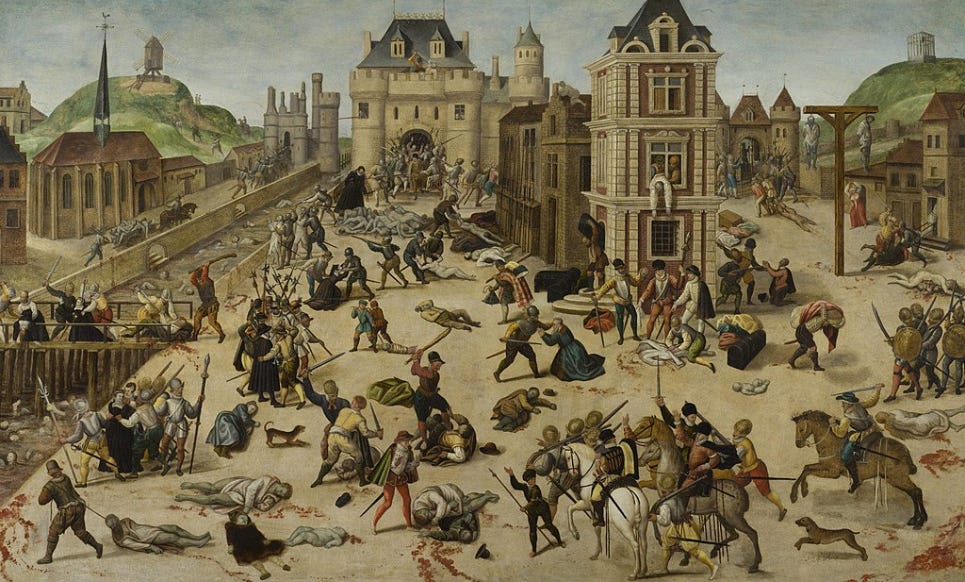
In that bloody time of feudal oppression, where democracy was still 200 years away, we find La Boétie (pronounced boh-eh-see), the best friend of Michel de Montaigne, who wrote a crisp essay called The Discourse on Voluntary Servitude (1574), in which he created the ideological underpinnings for all modern political protest movements.
La Boétie had one simple message to people suffering under oppressive leaders:
You don’t have to put up with this.
La Boétie’s simple message has traveled down the centuries and inspired thousands of people to question and resist the suffocating policies imposed by their own leaders:
You can just say no. You can refuse to go along.
This sounds incredibly, embarrassingly basic, but somehow every generation, no matter how politically active in their youth, gets a little too comfortable with the status quo and the next generation has to learn it anew.
That’s true of even the generations steeped in protest, like U.S. Baby Boomers (like Bernie) who spent their youths protesting the government’s bloody insistence on committing genocide during the Vietnam War and then, as they became more comfortable and occupied positions of power and status, subsequently moved en masse to the right, with 56% of people over 65 years old opposing student antiwar protests not unlike the ones they themselves once bragged about attending in their youth.
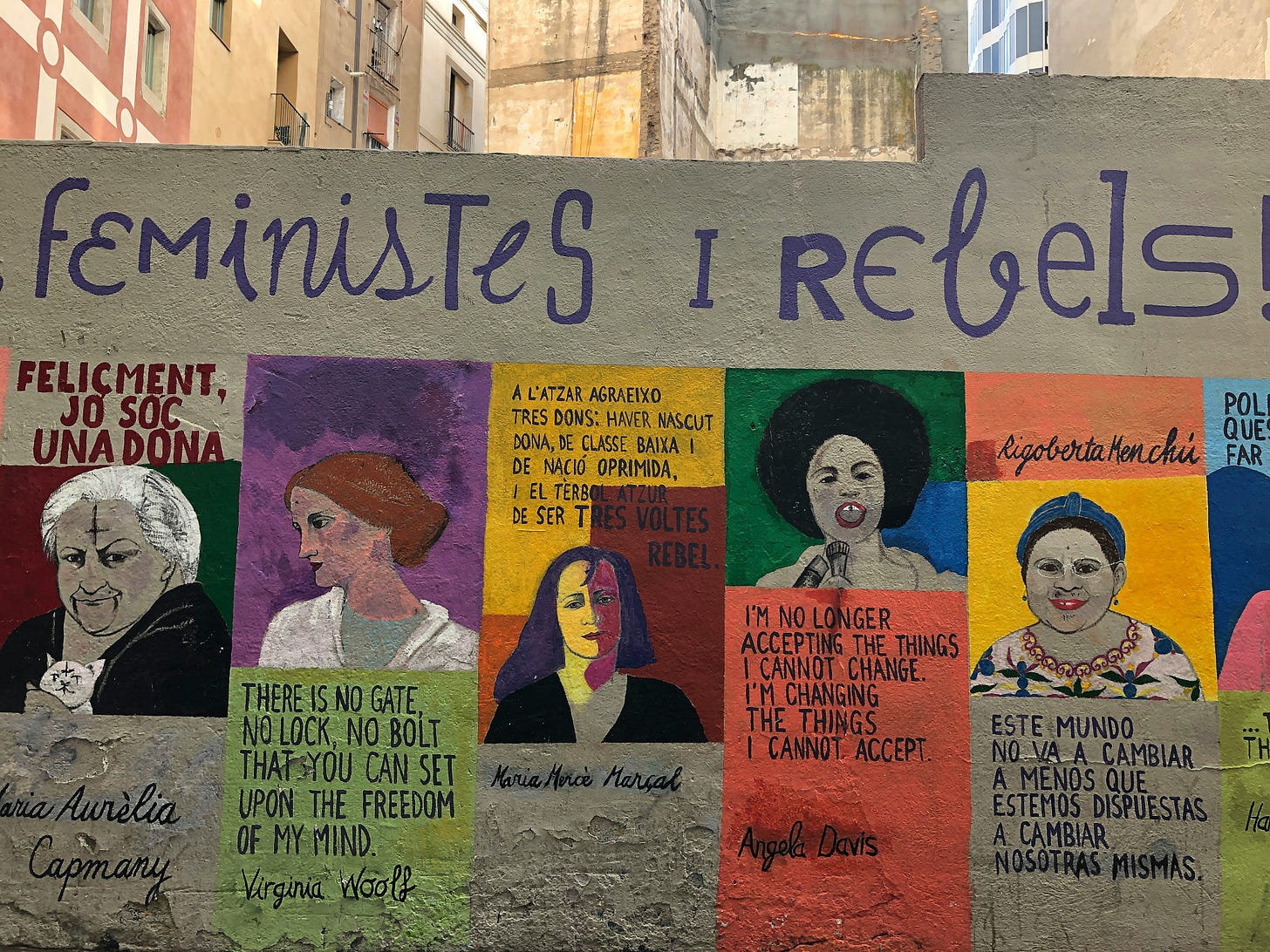
Enter La Boétie. He wondered why people listen to tyrannical leaders — especially when there are so many citizens, who far outnumber the officials, and on whom the power of those leaders depends.
La Boétie’s point was uncomplicated: The state has only the power that the people decide to give to it. Citizens have free will and the power to keep their leaders accountable to them, and do not have to go along with oppressive policies.
Here is an excerpt from La Boétie’s Discourse:
For the present I should like merely to understand how it happens that so many men, so many villages, so many cities, so many nations, sometimes suffer under a single tyrant who has no other power than the power they give him; who is able to harm them only to the extent to which they have the willingness to bear with him; who could do them absolutely no injury unless they preferred to put up with him rather than contradict him.
La Boétie is just getting warmed up there. He goes on to marvel at why people concede any power to a political leader at all (emphasis mine):
But O good Lord! What strange phenomenon is this? What name shall we give to it? What is the nature of this misfortune? What vice is it, or, rather, what degradation? To see an endless multitude of people not merely obeying, but driven to servility? Not ruled, but tyrannized over? These wretches have no wealth, no kin, nor wife nor children, not even life itself that they can call their own. They suffer plundering, wantonness, cruelty, not from an army, not from a barbarian horde, on account of whom they must shed their blood and sacrifice their lives, but from a single man; not from a Hercules nor from a Samson, but from a single little man. Too frequently this same little man is the most cowardly and effeminate in the nation, a stranger to the powder of battle and hesitant on the sands of the tournament; not only without energy to direct men by force, but with hardly enough virility to bed with a common woman!
If you can think of a country living under a leader who is a “stranger to the powder of battle,” yet somehow commands armies (a draft dodger, perhaps?) someone who maybe even mobilizes that army against his own citizens…well, please leave your suggestions below in the comments.
The solution to this problem — this voluntary servitude to tyrannical leaders who harm the populace — is simply to…stop complying, La Boétie suggests.
The refusal by the populace to comply with tyrannical leaders depletes the power of those leaders and leaves them without authority to abuse:
Everyone knows that the fire from a little spark will increase and blaze ever higher as long as it finds wood to burn; yet without being quenched by water, but merely by finding no more fuel to feed on, it consumes itself, dies down, and is no longer a flame. Similarly, the more tyrants pillage, the more they crave, the more they ruin and destroy; the more one yields to them, and obeys them, by that much do they become mightier and more formidable, the readier to annihilate and destroy. But if not one thing is yielded to them, if, without any violence they are simply not obeyed, they become naked and undone and as nothing, just as, when the root receives no nourishment, the branch withers and dies.
Importantly, La Boétie shows exasperation not just with tyrants who abuse their power, but with citizens who give up their voice, their sense of unity and community, and their own freedom rather than confront a bad leader.
La Boétie points out that if you do not use your rights — if you just leave them lying around, neglected and unused — that it follows that they will be stolen just like anything else left vulnerable to opportunists and thieves.
If, on the other hand, you refuse to hand your rights, your voice and your body to autocrats — if you keep those things for yourself, and use them to stand up for yourself and others — then dictatorial leaders have no tools to oppress you with:
Poor, wretched, and stupid peoples, nations determined on your own misfortune and blind to your own good! You let yourselves be deprived before your own eyes of the best part of your revenues; your fields are plundered, your homes robbed, your family heirlooms taken away. You live in such a way that you cannot claim a single thing as your own; and it would seem that you consider yourselves lucky to be loaned your property, your families, and your very lives. All this havoc, this misfortune, this ruin, descends upon you not from alien foes, but from the one enemy whom you yourselves render as powerful as he is, for whom you go bravely to war, for whose greatness you do not refuse to offer your own bodies unto death. He who thus domineers over you has only two eyes, only two hands, only one body, no more than is possessed by the least man among the infinite numbers dwelling in your cities; he has indeed nothing more than the power that you confer upon him to destroy you. Where has he acquired enough eyes to spy upon you, if you do not provide them yourselves? How can he have so many arms to beat you with, if he does not borrow them from you? The feet that trample down your cities, where does he get them if they are not your own? How does he have any power over you except through you? How would he dare assail you if he had no cooperation from you? What could he do to you if you yourselves did not connive with the thief who plunders you, if you were not accomplices of the murderer who kills you, if you were not traitors to yourselves?
You can read the rest of La Boétie’s Discourse on Voluntary Servitude here. (It’s super fun at dinner parties.)
The relevance of these concepts is as obvious now as it was to La Boétie’s successors in political theory, including John Milton, who wrote The Tenure of Kings and Magistrates to encourage people to overthrow leaders who become tyrants. (And off went the Enlightenment and eventually, its practical applications in the revolutionary era).
What America is experiencing under Trump, and what so many countries are experiencing under leaders who respond to mild criticism with enormous state violence, is not new. It has happened again and again in human history.
And every time, the answer of the people was: Protests. Demonstrations. Grab the leaders’ attention and don’t let go.
What we should be discouraging, instead, is violence against protesters used by local and federal law enforcement. There is no need for police to show up with extreme, injurious and maiming weapons like automatic weapons, rubber bullets or even tear gas.
We can have a world in which people protest for their civil rights and aren’t shot, arrested or maimed for it. We can have a world in which all protests are safe, because police do not bring their guns or physically attack citizens who are speaking up for themselves.
(Above, a video from Luis.documents captioned: NYPD slammed a protester on concrete and left them unconscious for nearly half an hour in the prison bus. No medical attention was provided until someone spoke to an FDNY medic, an ambulance was called. Cops still tried to cuff his lifeless body on to the stretcher.)
(Above: A video shared on Twitter by
showing LAPD deliberately trampling a protester with their horses)We do need that safety, because it’s evident that people prefer to say nothing and use “the threat of violence” as a fake excuse. That attitude of excuse-making is the fruit of decades of pervasive political apathy — fed by the frivolous memes, symbolic stunts and silly inanities of neoliberal politicians who haven’t passed useful policy in years, much less stood up for anyone’s rights. Quite the contrary — both Democratic and Republican administrations going back decades, as well as the current one, have successfully rolled back many rights as they insisted that people shouldn’t protest this open robbery. All the while, those politicians rake in enormous donor money for keeping voters quiet.
We’ve been sitting in the predictable economic and social stagnation of 40 years of a sleepy centrist-liberal coalition to keep the majority of American citizens out of participation in politics, unwilling to speak up or confront their own leaders despite a genuinely miserable political environment that includes everything from mass unemployment, crushing consumer debt, high food insecurity, and of course, ICE abductions of people — even US citizens — right off the streets.
Protest movements during that time— for abortion rights, for women’s rights, for LGBTQ rights, for immigrants’ rights, for Black rights, among others— have been largely derided by the liberal establishments as as a phenomenon limited to marginalized groups and thus politically sidelined: “The Groups,” as many liberal pundits sneered in consultant-speak after the 2024 election, implying, incorrectly, that most Americans have no real stake in politics. (The truth is that elected officials commission polls of voters, then ignore the ones that don’t serve their donors’ interests, to catastrophic effect).
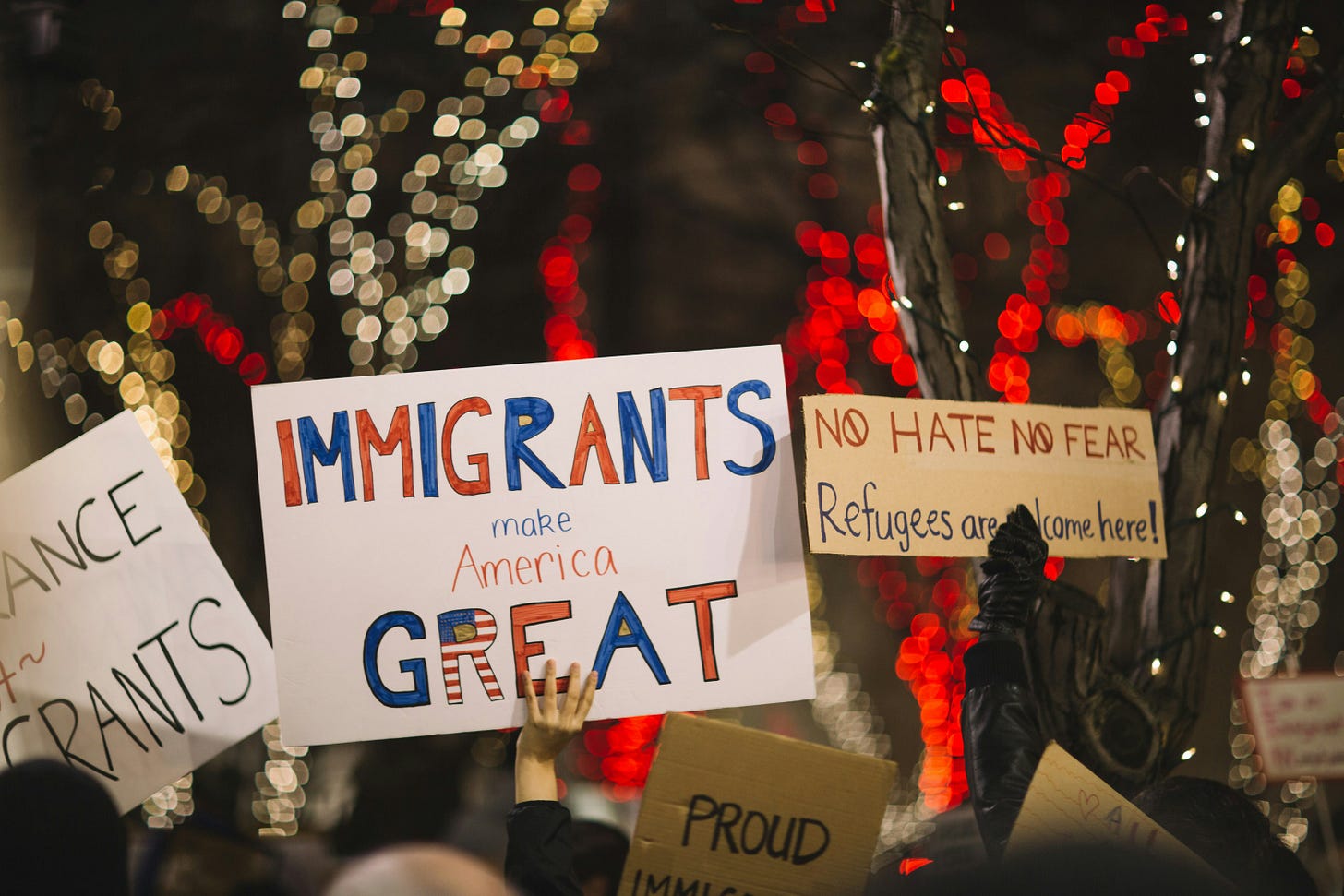
The arc of this movement to push Americans to sit down and shut up has not yet completely worked. It led, predictably, to previous eruptions of anti-establishment movements in all parties — Occupy Wall Street, the Tea Party Movement, even Trumpism, as Donald Trump won two presidencies by presenting himself as a truth-telling, near-messianic liberator from politics as usual, mining American dissatisfaction with their politicians. (Trump has gone on, obviously, to conduct politics as usual, and worse.)
It doesn’t take a political theorist to see that we are being cornered by our elected officials and their enablers into accepting that political power should be concentrated solely in the financial exchange between elected officials and billionaire donors. Voters, we are repeatedly told by pundits, should stay out of politics until it’s time to go to the polls — meaning, when it’s useful for politicians’ careers.
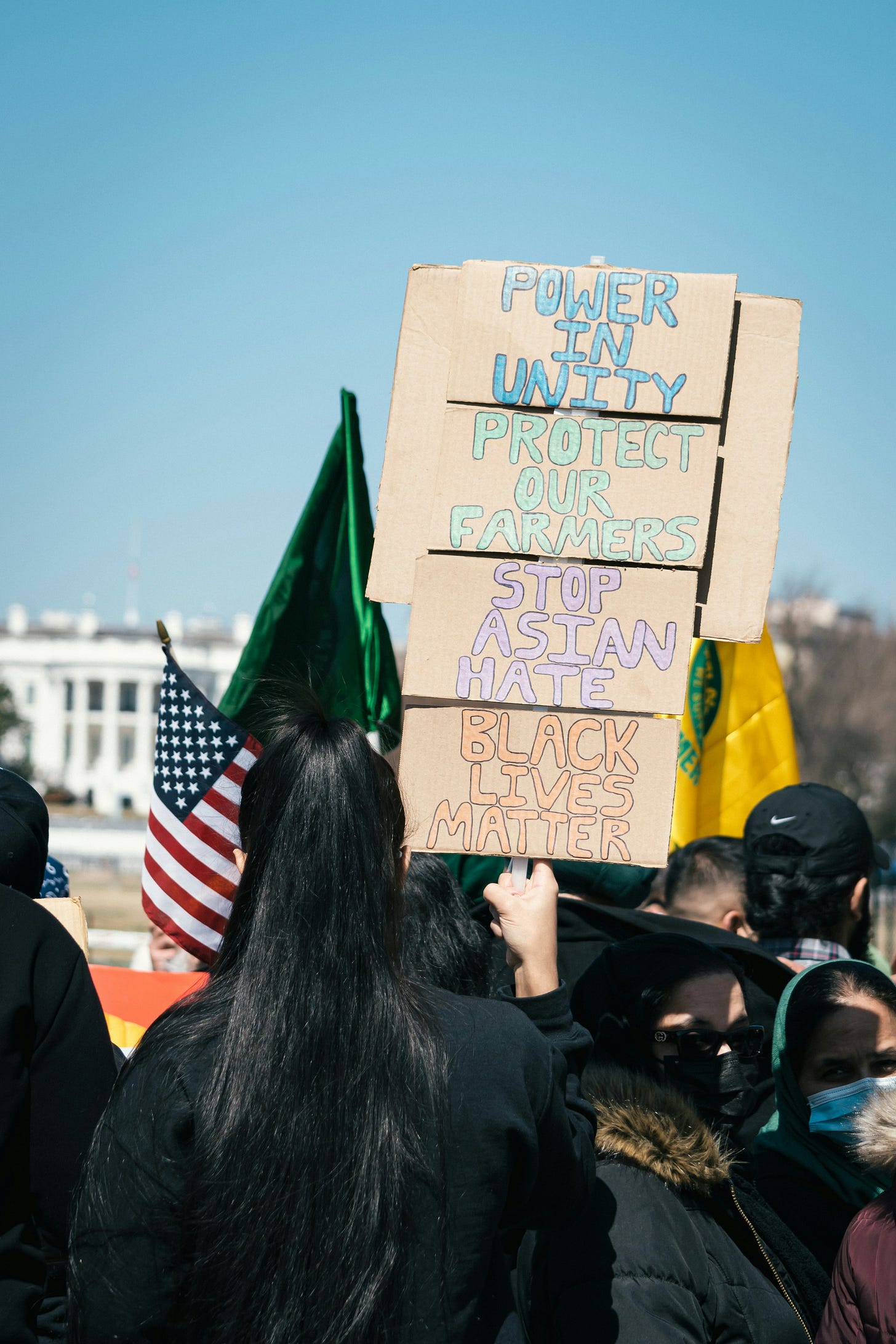
And now, out of what the philosopher Immanuel Kant might have called a “dogmatic slumber,” Americans are slowly waking up again to just how bad things have become, and why it’s necessary to insist, strongly, on making them better.
In the (questionably chosen, but accurate) words of the otherwise useless senior Senator from New York, Chuck Schumer: “The people are aroused.”
The right to protest is a crucial way to communicate, between elections, what voters want. Politicians and pundits know this. The ones telling you not to protest are telling you to not communicate, to abandon your constitutional rights to them. They’re telling you to infantilize yourself, to believe that being a citizen in a democracy is too much work and you shouldn’t worry your pretty little head and let them do it instead.
That’s because protests are a very compelling, visible way to hold politicians accountable.
For instance, Rachel Maddow, the patron saint of liberal punditry, recently used the prevalence of anti-Trump demonstrations to prove a political point: “Trump has no idea what to do with the sustained and growing and intractable and indominable protest and opposition of the American people against him. Game over, big guy. You lose."
And that’s the problem.
Centrists and liberals can’t belittle the left for protesting, then brag about those protests as evidence to support their own political goals.
It’s hypocritical.
If you’re proud that someone is standing up to the administration, if you see the utility of a visible, tangible opposition to bad leadership, then you have to support their right to protest. And if you can’t do that, at least get out of the way.


















A really great analysis, Heidi. Detailed, persuasive, poignant, critical in all the right ways.
I do have two things to (just partly, lol) raise questions with… first, the argument on a movement en masse to the right of boomers who once protested the Viet Nam War. It is a somewhat complicated issue, but I think the data we have indicates it is not a generational ‘en masse’ move to the right that accounts for age group divisions we see, like 56% not supporting student protests on Gaza, but rather reflects political divisions within that generation (mine lol) that were present in the late 1960s and early 70s and persist today. But I will write more about this later.
Second, what you have today about the whole violent vs nonviolent protest narrative being rather crazy, turning the real responsibility completely around, is spot on.
But I think a closely related problem is the way ‘nonviolence’ gets defined, gets portrayed (by the media for sure, and so often by liberals). Effective protest depends on the *disruption* of everyday life. Mario Savio said this very plainly (my emphasis): ‘There is a time when the operation of the machine becomes so odious, makes you so sick at heart, that you can't take part; you can't even passively take part, and *you've got to put your bodies upon the gears and upon the wheels, upon the levers, upon all the apparatus, and you've got to make it stop*’
Making it stop: this is what the protests against the ICE gestapo, the Homeland Security authorities, and Trump & Co putting troops in the streets must try to do, and that cannot be done only by marching with signs and hymns. I love the signs and hymns, of course, but we have to put our bodies on the gears, the wheels, the levers, to make them stop.
I say all this as a long time committed pacifist — but pacifism does NOT mean being silent, being quiet, being ‘respectful’ (to fascism?!?), and it certainly does not mean not disrupting anything. Quite the opposite! Put our bodies upon the gears.